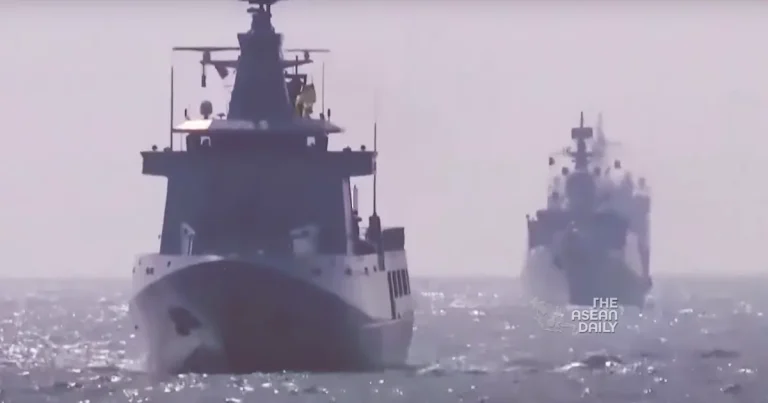19-9-2023 (JAKARTA) Amid escalating geopolitical tensions involving major powers and protests against China’s activities in the South China Sea, units from ASEAN countries have embarked on their inaugural joint military exercises in Indonesia’s South Natuna Sea.
The five-day operation, emphasizing non-combat activities, is designed to enhance military capabilities, particularly in the realms of maritime security, patrols, humanitarian assistance, and disaster relief, as stated by the Indonesian military.
All ten members of the Association of Southeast Asian Nations (ASEAN) are participating in this exercise, including prospective member Timor-Leste.
Indonesia’s military chief, Yudo Margono, clarified that this operation’s primary focus is not combat-related but rather centers around social activities, underscoring ASEAN’s emphasis on economic cooperation.
Originally intended to take place in the southernmost waters of the South China Sea—a region also claimed by Beijing—the drills were relocated due to initial location sensitivities.
China’s recent release of its “10-dash line” map, expanding its territorial claims to encompass approximately 90 percent of the South China Sea, has led to diplomatic protests. This strategic maritime area witnesses trade worth more than US$3 trillion annually.
Countries including the Philippines, Malaysia, Taiwan, and Vietnam have rejected China’s map, deeming it groundless. Malaysia has filed a related diplomatic protest.
At the 43rd ASEAN Summit in Jakarta earlier this month, Philippine President Ferdinand Marcos affirmed his nation’s commitment to safeguarding its sovereignty in the South China Sea while emphasizing a desire to avoid conflict.
The Philippines condemned China’s coast guard earlier this month for obstructing boats resupplying Philippine troops on an uninhabited atoll in the disputed Spratly Islands of the South China Sea.
Despite more than two decades of discussions, ASEAN has made limited progress in formulating a Code of Conduct for the South China Sea. Some ASEAN members, including the Philippines, have grown increasingly frustrated with the lack of advancement in this regard.
Addressing the rising geopolitical tensions, Indonesia’s Margono reiterated that this week’s drills are non-combat exercises, emphasizing their cooperative nature.




